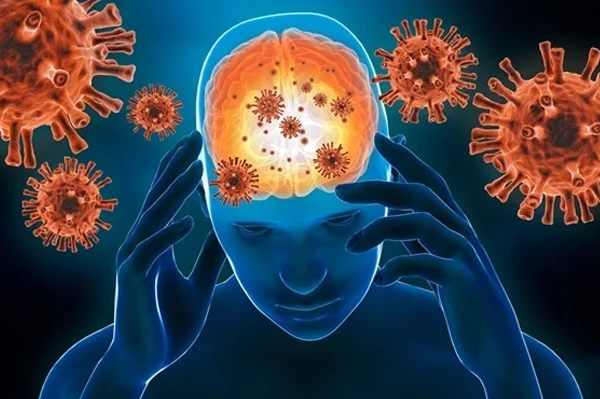Brain Infection

A brain infection occurs when pathogens such as bacteria, viruses, fungi, or parasites invade the brain or its surrounding tissues, leading to inflammation. These infections can be life-threatening if not treated promptly.
Causes
- Bacteria: Meningitis (infection of the meninges) or brain abscess caused by Streptococcus pneumoniae or Neisseria meningitidis.
- Viruses: Encephalitis triggered by herpes simplex virus, rabies, or arboviruses like West Nile virus.
- Fungi: Cryptococcal meningitis in immunocompromised individuals (e.g., those with HIV/AIDS).
- Parasites: Neurocysticercosis caused by Taenia solium (pork tapeworm) or toxoplasmosis in individuals with weak immunity.
Symptoms
Symptoms depend on the type and severity of the infection, including:
- General Symptoms: Fever, headache, nausea, and vomiting.
- Neurological Symptoms: Seizures, confusion, altered consciousness, and sensitivity to light.
- Focal Symptoms: Weakness, numbness, or difficulty speaking, depending on the infected brain area.
Treatment:
Treatment aims to eliminate the infection and manage symptoms. It varies based on the pathogen:
- Bacterial Infections: Intravenous antibiotics (e.g., ceftriaxone) and steroids to reduce inflammation.
- Viral Infections: Antiviral medications (e.g., acyclovir for herpes encephalitis) and supportive care.
- Fungal Infections: Antifungal agents like amphotericin B or fluconazole.
- Parasitic Infections: Antiparasitic drugs (e.g., albendazole) combined with corticosteroids.
